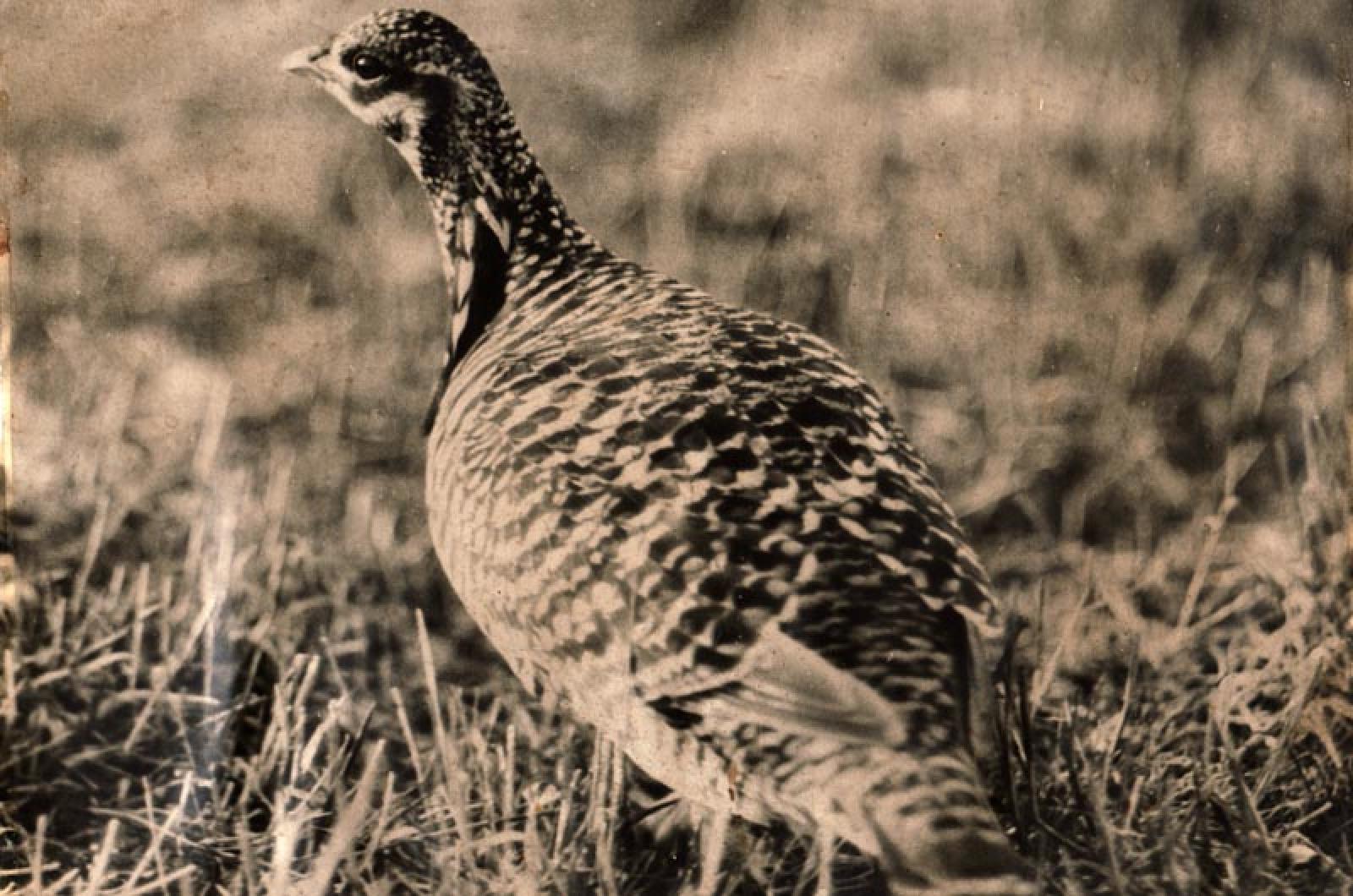From the April 5, 1929 edition of the Vineyard Gazette:
A single male heath hen, almost certainly the sole survivor of its species in the whole world, showed itself this week to Dr. Alfred O. Gross and Thorton W. Burgess, here to make the annual heath hen census. The solitary bird appeared upon its ancestral booming ground on the West Tisbury farm of James Green and vainly postured and called for a mate which does not exist. Mr. Burgess, in the portable hut used as a blind for the study of the heath hen, took motion pictures of the last survivor.
In company with Allan Keniston, superintendent of the state reservation, Dr. Gross covered a great deal of ground where heath hen have been seen in other years, Mr. Keniston has maintained a careful watch of the Island cover, making daily reports of his quest for living heath hen. Whenever heath hen were reported to have been seen he investigated thoroughly. In every case where birds have been found they have proved to be ruffed grouse, and not the pinnated grouse or heath hen.
A year ago the census takers saw three birds. At that time, although the case of the heath hen was considered desperate, there was a sharp difference of opinion as to the number which might be believed to exist. Up to December 8 Mr. Keniston was able to keep track of two birds on the Green farm. Since that time only one has been seen, and the certainty that this bird alone survives has gained general acceptance.
Dr. Gross, although reserving his conclusions for his official report to Director William C. Adams of the Massachusetts division of fisheries and game, has no further doubt that the total number of birds seen in recent years has been fairly close to the total number alive.
For several years there have been no heath hen on the state reservation and it has been taken for granted that they had moved away for some unknown reason. Dr. Gross and Mr. Burgess are now inclined to believe that the reservation birds became extinct and that they did not move to any other refuge. The lone heath hen at the Green farm, if this belief is correct, is probably the survivor of the great flock which has frequented that particular part of the plains from time immemorial, a flock described by Mr. Green as of considerable size as far back as he can remember. The heath hen, like other species, has an ingrained habit of returning to its ancestral mating ground in the spring; and it is likely that the heath hen on the Island have always been colonized and that the colony which alone represents the species today is the last to die out.
How long a period lies between the single surviving heath hen and the extinction of the species cannot be conjectured. Dr. Gross said this week that every effort will be made to protect the bird and to keep track of it. Mr. Adams has given his assurance that the state reservation will be maintained even after the bird can no longer be found, with Superintendent Keniston in charge, Perhaps the end of the heath hen will come soon; it may be delayed until another spring.
An unparalleled and singular experience of science is that of studying at close range the last specimen of a species about to become extinct, the surviving specimen continuing to live its normal life in the habitat of its ancestors. The last passenger pigeon died in captivity; presumably no one saw the last dodo die. The last heath hen, free and wild to the very end, enjoys its liberty and yet, following the action patterns of its species, presents itself to view and acts out its mating ritual under the very eyes of the greatest authorities upon its natural history and under the lens of a motion picture camera.
Dr. Gross said that nothing could be gained, in his opinion, by attempting to capture the last heath hen. There are heath hen skins, well mounted, in many museums and science could not profit by stepping in ahead of nature. This last bird, therefore, is to be left to its own devices. It will die in the surroundings in which it has lived.
On Tuesday morning, the heath hen was seen to alight in a tree and from this unaccustomed perch he sent out his mating cry, the low penetrating boom that sounds like blowing in the neck of a bottle and carries farther than a gun shot. For a heath hen to boom in a tree is very rare. The watchers also saw a hawk soar above Green’s field and the last heath hen wheel away in fear of this hereditary foe. How many such occasions there must be each day, it is impossible to guess. But on every threat of danger to this bird at West Tisbury the extinction of a species is in the balance.
Soon the time will come which no man can prevent when this lone cock of the plain brush will pass, and the dust of the ages, faintly tracked by the passenger pigeon and many another species, will bear a fresher track leading away into oblivion, the track of the heath hen.
Compiled by Hilary Wall
library@mvgazette.com







Comments
Comment policy »